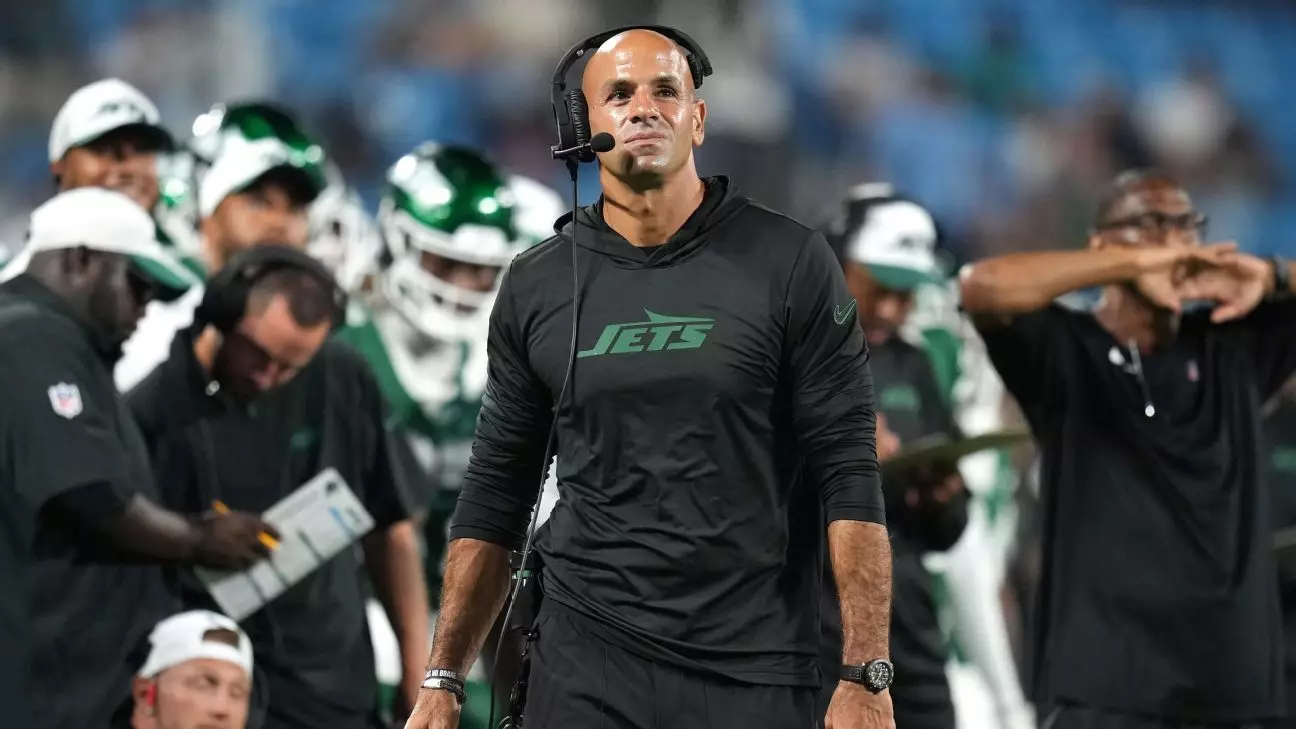On a seemingly routine Tuesday, a seismic shift occurred within the New York Jets organization as owner Woody Johnson announced the dismissal of head coach Robert Saleh. Despite showing promise when he was hired in 2021, Saleh’s tenacity and defensive prowess could not salvage a disappointing 2-3 start to the season. Johnson’s decision—an unprecedented move in his long tenure—reflects the impatience of NFL ownership for results, especially within a franchise that has experienced prolonged frustration and sporadic highs.
The Jets have long been marred by mediocrity, and their faith in Saleh was tethered to lofty expectations this season, notably buoyed by the arrival of veteran quarterback Aaron Rodgers. Johnson’s statement underscored the levels of disappointment permeating throughout the franchise after a not-so-ideal start. This abrupt decision signals not just a shift in leadership but serves as a reminder of the harsh realities of professional sports—the threshold for leniency is continually decreasing.
In what some may view as a logical progression, defensive coordinator Jeff Ulbrich has been appointed as the interim head coach for the remainder of the 2024 season. Ulbrich, a respected figure within the organization, is expected to rally the coaching staff and players to recapture momentum amidst the disarray. The transition to an interim coach can be riddled with challenges, but it also creates a fresh narrative and opportunities for players to seize the day under new guidance.
While Ulbrich has a reputation as a gritty coach, the hurdles he faces are significant. With a roster that possesses potential yet has consistently faltered in execution, it will be crucial for him to reinvigorate the team’s spirit and adapt strategies to maximize their talent. This prevailing sentiment of urgency underscores the monumental task ahead—re-instilling confidence while addressing the lingering concerns of offensive ineffectiveness.
Saleh’s departure not only signifies a pivotal moment in Jets history but also provides a lens through which to evaluate his bygone three-and-a-half-year tenure. The statistic of a 20-36 record speaks volumes, especially when placed against the backdrop of skyrocketing expectations heralded by the signing of an elite quarterback like Rodgers. Throughout his reign, Saleh was tasked with leading a squad plagued by instability, particularly at the quarterback position. The starting quarterback carousel, featuring six players over four seasons, underscores the broader challenges that defined Saleh’s efforts.
There was a level of optimism when the Jets drafted Zach Wilson second overall, but his rapid regression and inconsistency further complicated Saleh’s attempts to build a cohesive team identity on offense. The volatility of the quarterback position under Saleh’s watch has indeed acted as a double-edged sword—while the defense often maintained a stronghold, the offense’s inability to capitalize on opportunities consistently set the tone for disappointing season outcomes.
With this new chapter unfolding under Ulbrich’s stewardship, Jets fans might feel a renewed sense of optimism. The remaining weeks of the season provide both a testing ground for talent and an opportunity to forge relationships that might ultimately redefine the team’s trajectory. As the Jets continue to navigate their offensive woes and salvage their season, one question remains at the forefront: can this team realize its potential, or has the path to success become clouded by shifting strategies and unfulfilled promise?
Rodgers, though vocal in expressing camaraderie with Saleh, has a profound role to fill as the team’s veteran leader. The relationship between a quarterback and head coach can be decisive in shaping a team’s identity—a balance that Ulbrich must navigate carefully. Moving forward, the Jets’ capacity to address their fundamental issues while cultivating a culture of cohesion will dictate the future of the franchise.
The Jets find themselves at a crossroads where introspection, accountability, and strategy will be pivotal to their NFL resurgence. Whether the coaching change creates a catalyst for long-term success or simply serves as another chapter in their tumultuous history remains to be seen. As the 2024 season unfolds, the eyes of fans and analysts alike will be keenly focused on how the Jets respond to this significant juncture.


Leave a Reply